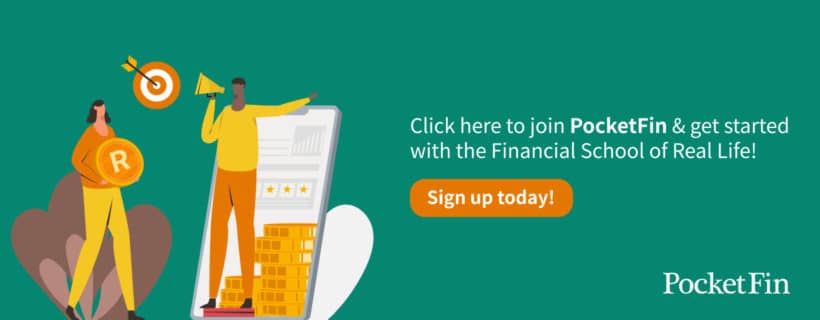This article is part of an ongoing series of basic financial education brought to you by financial industry professionals curated by PocketFin – The Financial School of Real Life. CNBC Africa provides content from PocketFin as a service to its readers but does not edit the articles it publishes. CNBC Africa is not responsible for the content provided by PocketFin.

There is no doubt that the Covid-19 pandemic has turned the world upside down in many ways, and in particular in a personal financial aspect. Whether you have lost your income, taken pay cuts, lost dependants, it is sure an erratic time in our lives.
As the worldwide vaccine rollout is in motion and countries desperately try curb any significant spikes in infections, how can you use what has happened through this pandemic to better your personal finances and relationship with money?
Let’s discuss some of the potential habits that you have practiced and what you should keep going forward:
Cutting expenses
During the past two years, you probably reduced most normal and/or luxury expenses. If you learned to handle cooking at home, making your own coffee or finding more efficient and cost effective ways to live, would you rather start paying someone else again or keep doing it yourself to save money? You could keep running out in nature instead of reinstating your gym membership, entertain at home instead of dining out, or ask to work from home instead of commuting again and spending money on transport and fuel.
Contributing to an emergency fund:
Even if your income wasn’t affected, the pandemic revealed the importance of maintaining an emergency fund. You should build up and maintain an emergency fund that can cover a minimum of three to six months of your living costs/bills and if you are self employed the bare minimum should be six months.
Getting rid of debt:
High interest debt such as short term loans, credit cards and store accounts can chew away at your wealth significantly in the short and medium term. It is of utmost importance to understand what interest rate your debt costs and make adequate plans to rid the highest interest debt first. If your debt is spanned across multiple providers consider speaking to a debt counselor where they can consolidate your debt into a single payment.
Habits to forget
While some habits could have helped you, we believe these habits should be forgotten about as soon as possible as we move forward in the post-pandemic world.
Being to cautious
There are far too many investors being extremely conservative and leaving their money in low-bearing interest accounts which often perform under inflation such as most typical money markets or fixed deposits. Especially as a young adult with decades of time to spend in the investment markets, you want to be investing in asset classes and products that can aim to beat any cash or fixed income investments, especially over the long run. It is important to also be well diversified to build a sustainable financial future.
Spending unnecessarily
Stuck at home in lockdown could have spurred an online shopping habit, spending money on potentially unnecessary items for your home or just typically spending money on lifestyle items you do not need. As we move forward it is critical to acknowledge that you need to curb these habits and start rebuilding your financial future. Many people have opted to use the excuse of financial pressure during the pandemic to stop contributing to investments and their pension fund, but somehow they have still spent that money elsewhere. It is important that you take a hard look at where you are financially and where you want to be. As always, in financial or investment planning it is about having time in the market, continuing regular contributions into a diverse range of asset classes and investments.


